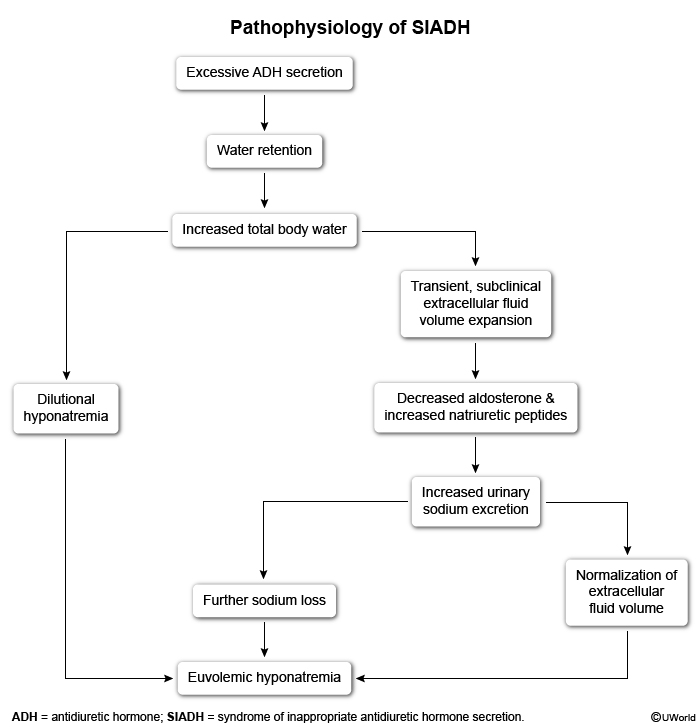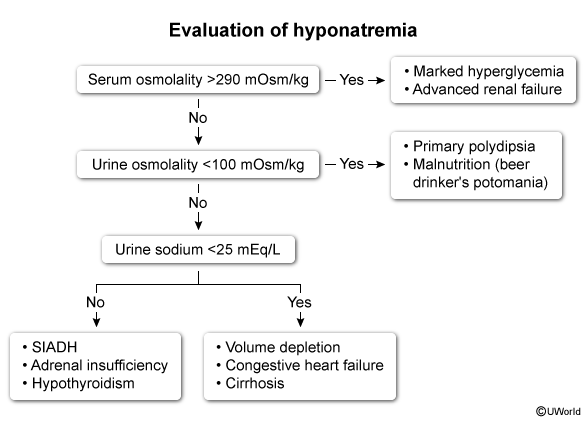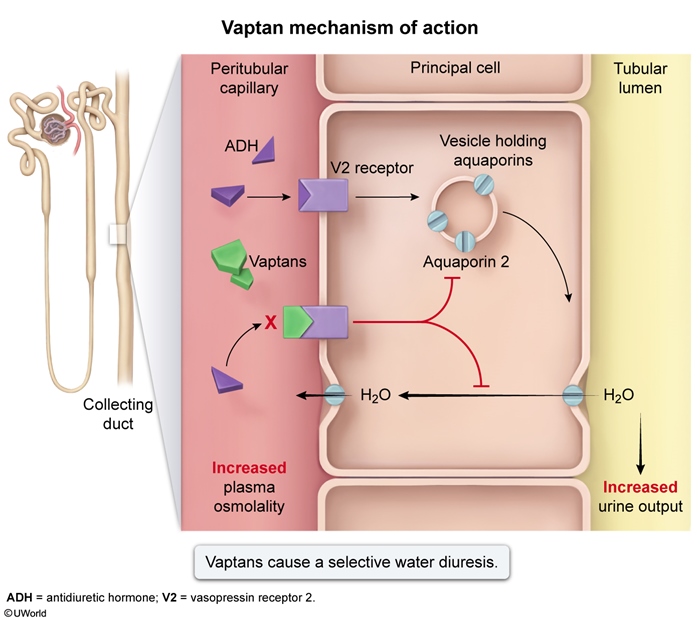Syndrome Of Inappropriate Antidiuretic Hormone (SIADH)
Article Sections
Introduction
The syndrome of inappropriate antidiuretic hormone secretion (SIADH) is characterized by unregulated release of antidiuretic hormone (ADH or vasopressin) (eg, unresponsive to inhibition), leading to water retention with dilutional hyponatremia (free water cannot be excreted). It is characterized by euvolemic hypotonic hyponatremia despite suppression of renin, aldosterone, and atrial natriuretic peptide.
Pathophysiology and risk factors
ADH is normally produced in the hypothalamus and secreted from the posterior pituitary in response to changes in plasma osmolality (mild stimulus) and intravascular volume (strong stimulus); this is considered appropriate ADH release. In SIADH, there is inappropriate ADH release, usually due to (Table 1):
- Ectopic production of ADH by tumors (eg, small cell lung carcinoma)
- CNS disorders
- Medications (eg, SSRIs, antiepileptics)
- Pulmonary diseases
- Other: pain, nausea, physical/emotional stress, older age
Continue Learning with UWorld
Get the full Syndrome Of Inappropriate Antidiuretic Hormone (SIADH) article plus rich visuals, real-world cases, and in-depth insights from medical experts, all available through the UWorld Medical Library.
Unlock Full AccessFigures


